The Best Free Shopify ERP Integration Solution for 2024
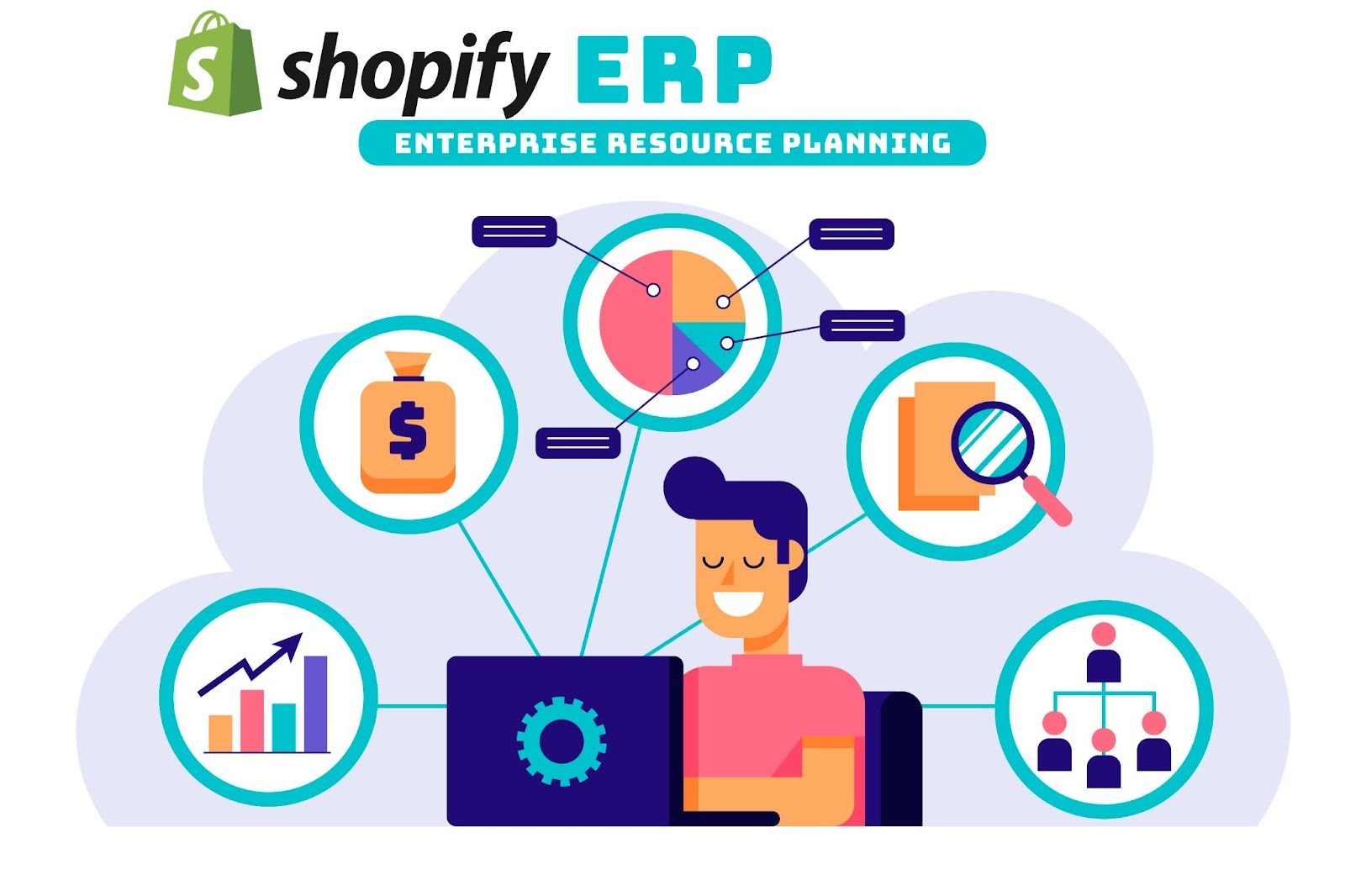
If you're an online store owner on Shopify or other mainstream eCommerce marketplaces looking for ways for automating business processes and increasing efficiency, consider integrating your Shopify store with an ERP system. With so many options available, it can be overwhelming to choose the best one. Don't worry, we've got you covered with the best Shopify ERP integration solution for 2024.
This article serves as your ultimate guide to the top ERP integration solution for Shopify in 2024. We've researched and compiled a list of the key features and benefits of this ERP system to help you make an informed decision for your business when it's time to integrate Shopify with an ERP system. Let's get started.
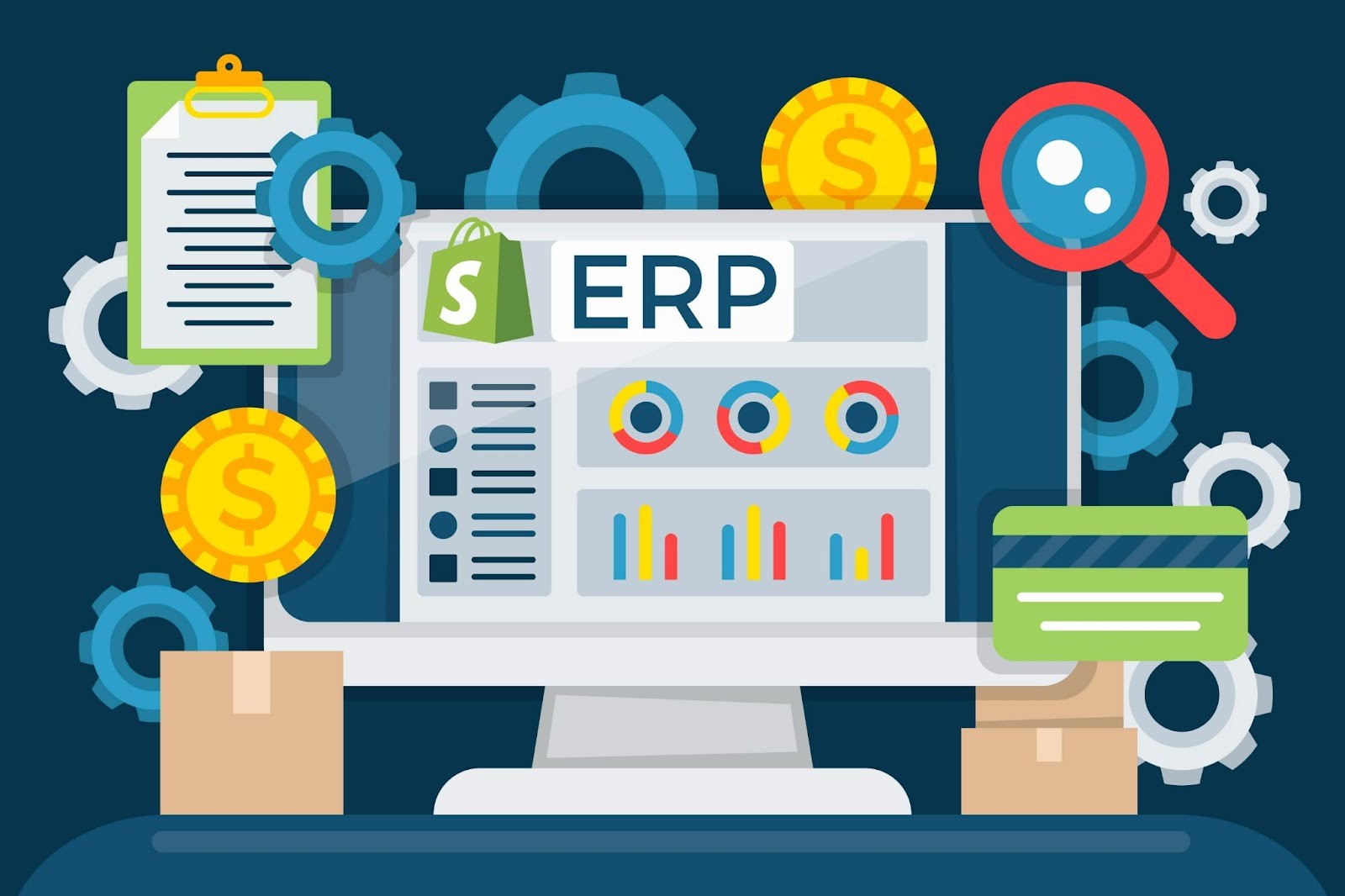
What is ERP?
Enterprise resource planning (ERP) is the secret to the most successful ecommerce brands. A cloud-based ERP solution referring to the software and systems that an enterprise uses to manage core business processes, expands the breadth and depth of an enterprise.
In short, ERP integrates all the processes into one system. Additionally, this integration platform connects multiple sales channels, operations and procedures for a coherent, future-proofed business.
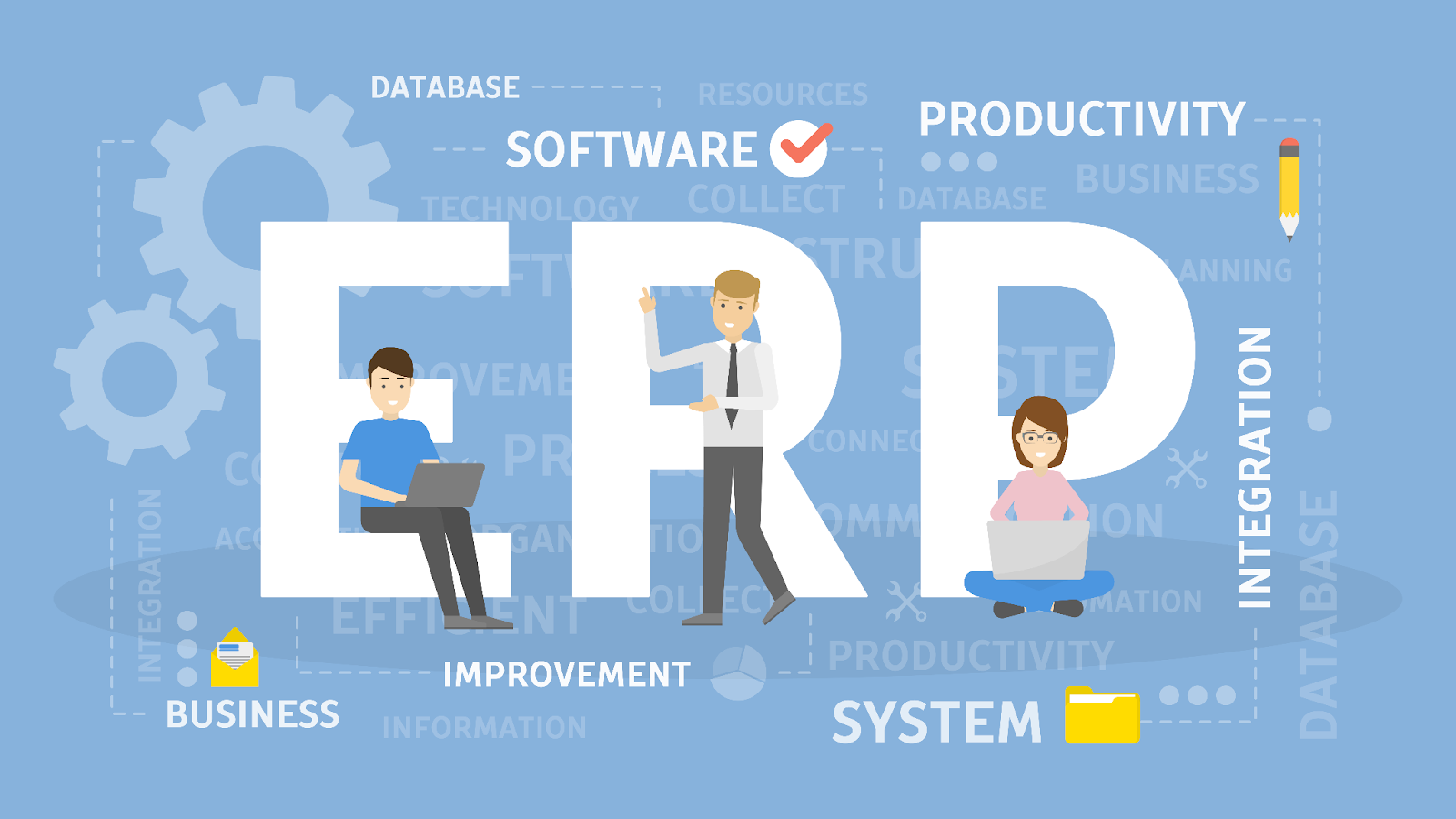
Why use an ERP with Shopify?
Shopify is a popular eCommerce platform that enables businesses to set up online stores and sell products to customers worldwide. While Shopify offers several built-in features, it may not fulfill all the requirements of businesses.
For example, what was once simple (when you only received a few dozen orders a day) might quickly become unbearable.
Manually handling orders that number in the hundreds or thousands each day isn’t scalable. Information becomes challenging to keep track of—especially if your business operates in numerous locations or multiple platforms.
For a while, you can get away with piecing things together in spreadsheets. But at some point, this heavy-lift means there’s simply too much manual labor, as well as inaccurate reporting and missed opportunities.
Ecommerce business owners spend more time handling paperwork tasks instead of concentrating on what matters: growing their company. So the importance of integrating ERP software is reflected.
5 Main Benefits of ERP Integration:
If you're going to spend time and money on Shopify integration, you should know exactly what to expect from it. Here are the primary advantages of a Shopify ERP integration.
1. Automated processes
ERP integrations make life easier for organizations moving massive amounts of data each minute. ERPs provide a comprehensive view of the business throughout distributed organizations, enabling continuous improvement through streamlined processes across departments and functions.
By linking their eCommerce storefronts with payment systems and delivery information, businesses can avoid the need for data re-entry and gain insights into which marketing workflows are most effective. This also eliminates costly human errors by minimizing the need for manual intervention.
The following activities can all be passed between systems to create an intelligent ERP system:
- Order information
- Customer data
- Shipping details
- Accounting systems
- Product and price information
- Inventory counts
- Purchase orders
ERP helps bridge business and functional silos, but automation helps scale innovation. When combined with technologies such as AI and cloud, ERP offers nearly limitless possibilities for improving business processes.
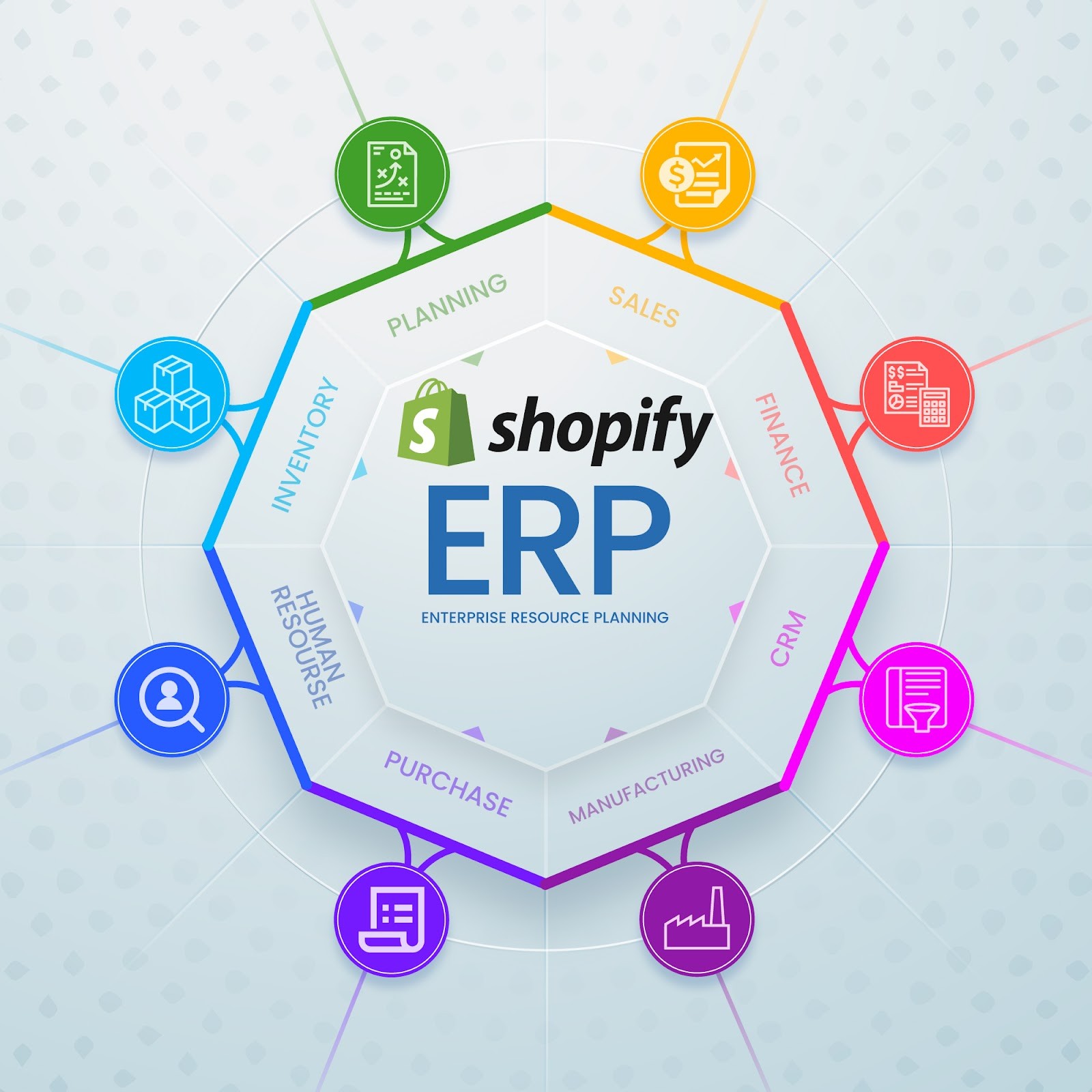
2. Increased Productivity
Implementing an ERP system for ecommerce enables you to access your most important data in one location, streamlining the management of multiple platforms. Integrated ERP systems automate several daily tasks, allowing ecommerce brands to streamline and automate web orders and shipments, which reduces the number of employees involved in the sales process.
3. Centralized data
ERP integrations make it possible to centralize enterprise data and improve communication throughout the business. They help create a central hub where all departments can access real-time data and take advantage of flexible, agile solutions in an ever-changing environment.
Without an ERP system, each department has its own records and databases. Teams can upload data and create reports and share them between different groups. But if there is duplicate data, they need to confirm data integrity, which creates more work and headaches for everyone.
Having a lot of data is one thing. But having accurate data and being able to access, analyze, and act on it is another. ERP integrations help you build ethically responsible and secure frameworks for managing and using data in your business.
4. Improved Inventory Management
Multi-channel operations and large-scale inventory management can complicate inventory management. Having a seamless eCommerce ERP integration can provide businesses with real-time visibility into their inventory levels and locations. This visibility into inventory management can help businesses avoid stockouts and overstocks, leading to better warehouse management and reduced costs.
5. Enhanced customer satisfaction
Placing a high value on customer satisfaction is crucial, which entails providing a top-notch online shopping experience and ensuring prompt and accurate shipment of purchases. ERP systems play a significant role in enhancing customer satisfaction by providing them with all the necessary information required to make informed decisions.
By integrating ERP software with your Shopify store, customers gain access to real-time updates on the entire purchasing process, which increases their confidence in your products and services. Customers can also select their preferred shipping options, including delivery schedules and handling fees, and complex split shipping becomes more manageable, enabling shipments to multiple international addresses using various modes of transportation with the help of a global ERP program.
When customers have confidence in your business and are pleased with the overall customer experience, it becomes easier for them to spread the word about your brand.
Best FREE ERP software solution - 4Seller
With over 250 ERP vendors on the market, it can be tough to know which one is the best fit for your business. If you are an online store owner on Shopify, Amazon, TikTok Shop, eBay, and Walmart and are looking for your first free ERP integration, 4Seller will be one of your best choices.
What is 4Seller?
4Seller is a US and Europe based multichannel management ERP system that connects Shopify, TikTok Shop, Amazon, eBay, Walmart and more sales channels. 4Seller allows ecommerce sellers seamlessly manage their products, prices, orders, customers, shipments, inventory, data and reports from one simple, centralized platform.
Why choose 4Seller to integrate Shopify?
1. Secured connections
Your ERP system is home to the most critical business information, including sensitive client data and proprietary intelligence. They must be protected at all costs. So the first factor in deciding an ERP is its security. The 4Seller company has over ten years of experience in ERP development and uses reputable cloud services for data security. Additionally, all the data transfer between systems and platforms are through the official APIs.

2. Simple and easy to use
4Seller comes with an easy-to-learn interface for you to manage all your channels. Demos and step-by-step tutorials and articles enable you to quickly master this ERP software to help manage your businesses.
3. FREE
ERP implementations can cost three to four times what was initially budgeted. But don’t sweat it: 4Seller app is free to use. You can search the Shopify App Store for the “4Seller ERP” app.
4. Responsive customer service
4Seller’s customer service team will respond to your inquiry and questions asap. Customer response time is less than 15 minutes.
5. Follow your tips
4Seller hears from their customers. If the functions in the system can not meet your requirements, feel free to give feedback to their customer team. More than 800+ functions are launched in their system annually, 50% of them are suggested by their users.
6. Manage all-in-one
The most important is what 4Seller can do for Shopify sellers.

✓ List products on multiple channels
Easily bulk edit and list your products to your different channels to reach more customers.
✓ Scrape products from Amazon/eBay/Shein/Walmart/Temu
4Seller Product Scraper Chrome/Edge extension allows sellers to import products from Amazon, Walmart, eBay, Shein, Temu and more platforms.
✓ Sync Shopify/Amazon listings to TikTok Shop
Quickly copy your existing Shopify/Amazon/TikTok Shop listings to your TikTok Shop stores.
✓ Sync inventory to prevent overselling
Automatically sync your inventory levels across multiple sales channels and automatically adjust your stock quantity to other online stores when sales are made in one Shopify store.
✓ Ship multi-channel orders
Integrating with USPS, UPS, Fedex, and third-party fulfillment providers, sellers can print shipping labels and ship all your orders from a single interface to maximize efficiency. 4Seller improves the efficiency by supporting sellers to customize shipping labels and set logistics rules to auto-buy shipping labels, and so on.
✓ Fulfill orders through Amazon MCF
Have Amazon FBA fulfill orders for Shopify, TikTok Shop, and other marketplaces and automatically update the tracking numbers to the sales channels.
✓ TikTok Creators Batch Outreach Tool
Bulk send messages/invitations to TikTok creators to avoid the hassle.
✓ Gain Valuable Insights
Make informed decisions to optimize your sales with accurate cross-channel reports.
✓ TikTok Bestsellers & competitive monitoring
Offer the data of TikTok bestsellers rank, surging sales rank to help sellers find winning products to sell. Monitoring competitors to assist sellers to optimize their listings accordingly
How to integrate Shopify with 4Seller ERP?
Step 1:
Search the Shopify App Store for “4Seller ERP”.
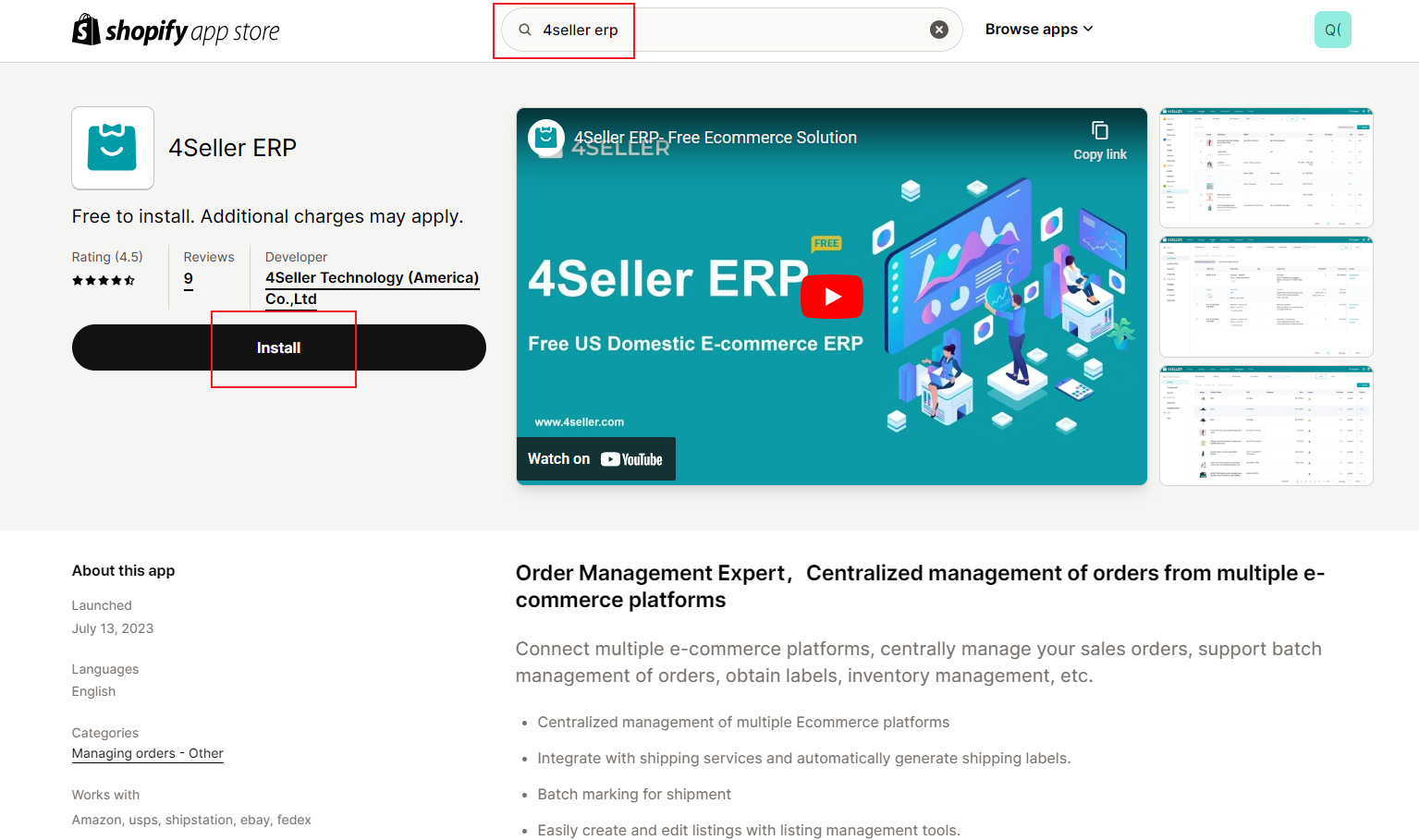
Step 2:
Hit the Install icon. It will redirect you to the 4Seller page, you can sign up for an 4Seller account with your email.
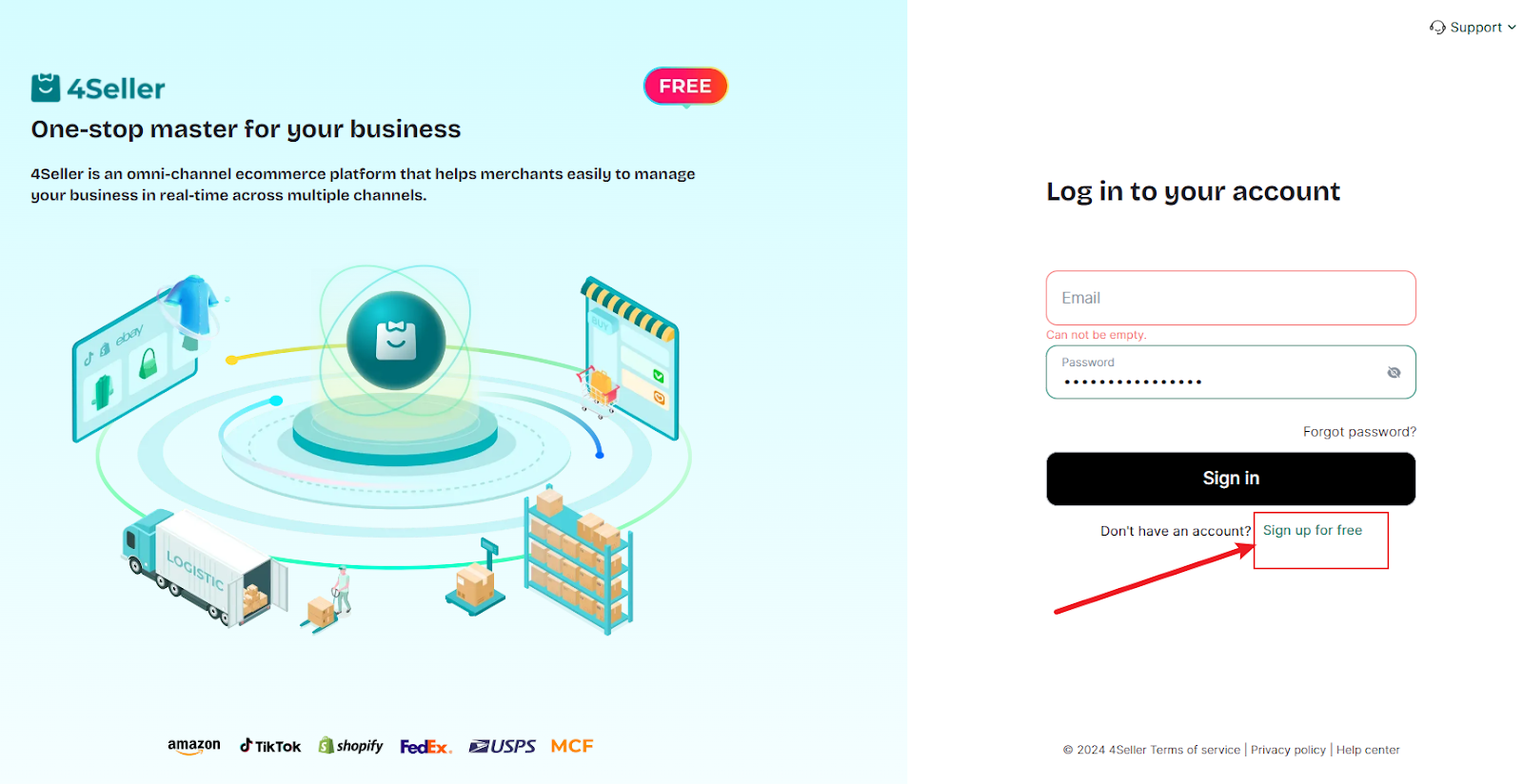
Step 3:
After this, you have successfully connected your Shopify store with your 4Seller account. Now you can fill in your 4Seller account’s information and use 4Seller to manage your business.
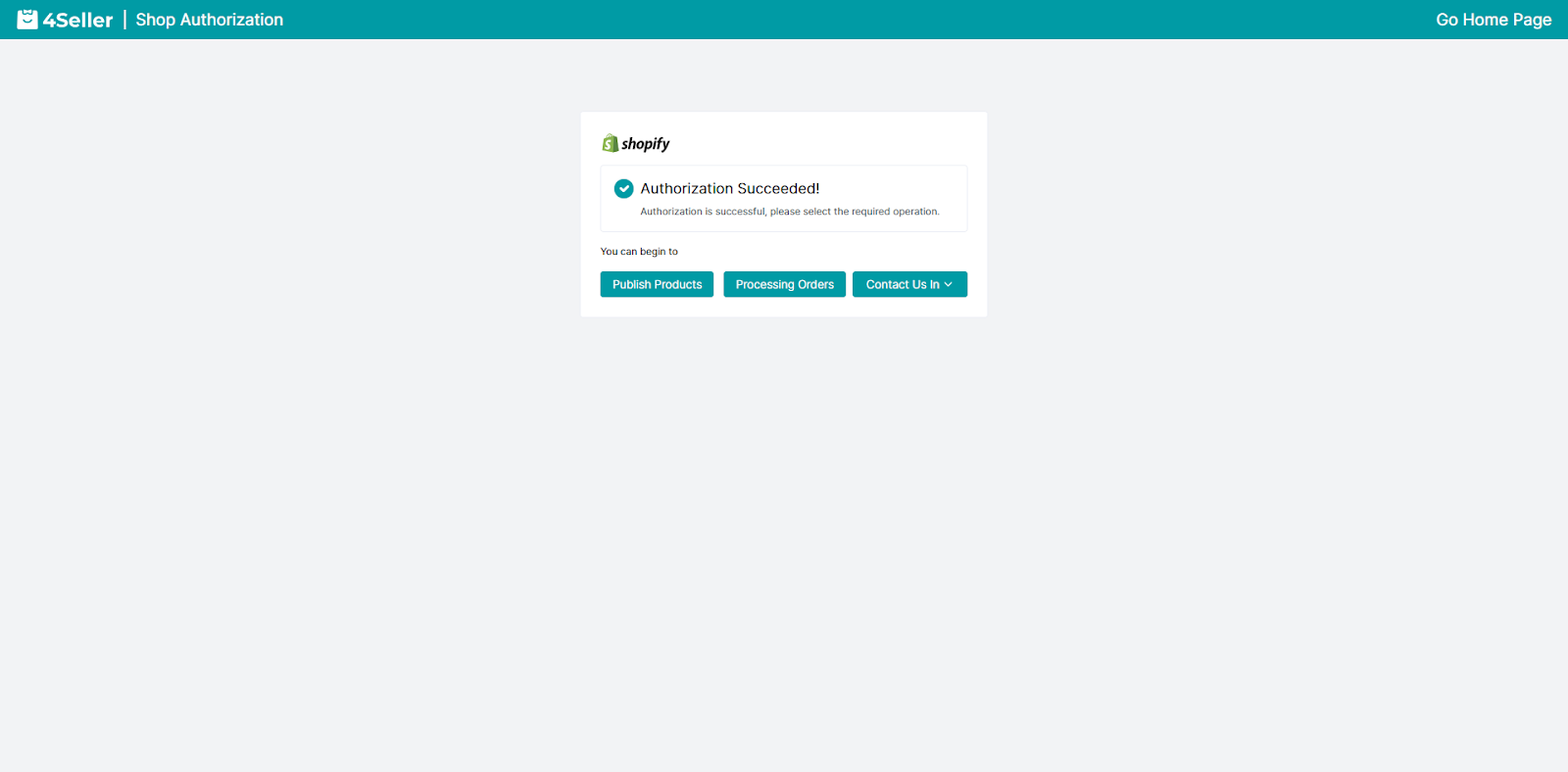
Final Word
Having a well-optimized ERP is a sign of business maturity and can reap the benefits of improved efficiency, productivity, and profitability.
If that sounds interesting, why not give 4Seller a try?
If you have any concerns or questions in integrating 4Seller with Shopify, contact 4Seller customer service at [email protected].